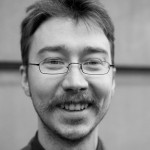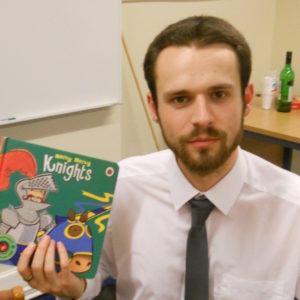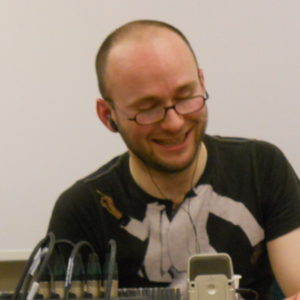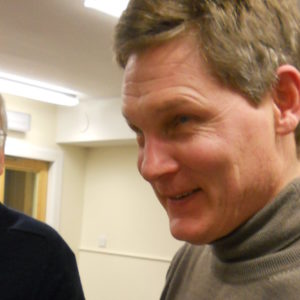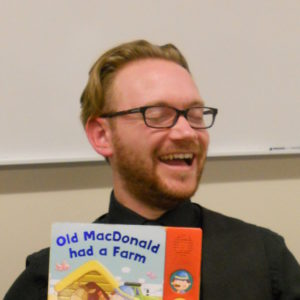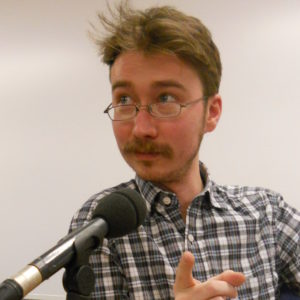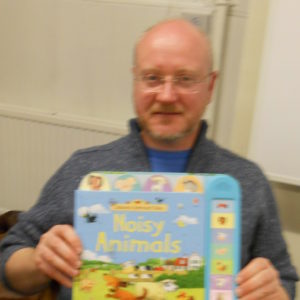Who joins New Religious Movements?
James R. Lewis was kind enough to have a chat with us at the 2012 EASR conference in Stockholm despite having a sore throat due to a cold. Lewis has been involved in research on new religious movements (NRMs) since the early late 1980s and has both written and edited extensively on the subject. In this episode of the Religious Studies Project, Lewis shares some of his views on the study of NRMs. It seems, claims Lewis, that our current generalizations about who joins such movements is based on outdated statistics. It seems no longer to be the case that it is primarily young people who join NMRs, rather joiners’ age has increased during recent decades. This demonstrates why we need more and better quantitative data. James and Knut also talk a bit about the situation in Norway when it comes to research on NRMs.
You can also download this interview, and subscribe to receive our weekly podcast, on iTunes. And if you enjoyed it, please take a moment to rate us.
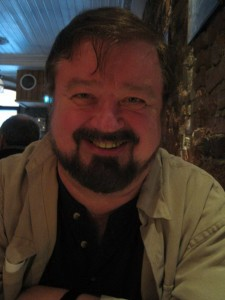
James R. Lewis is a associate professor of religious studies at the University of Tromsø. Among Lewis’ latest titles are the monographs Children of Jesus and Mary: The Order of Christ Sophia (2009) and the forthcoming Embracing the Darkness: Modern Satanism (with Asbjørn Dyrendal & Jesper A. Petersen) and Routledge Introduction to New Religious Movements. Among his edited collections are Violence and New Religious Movements (2011) and Handbook of Religious and the Authority of Science (2010, with Olav Hammer). Lewis is also editor of Brill’s Handbooks on Contemporary Religion series. He co-founded the International Society for the Study of New Religions. The full publication list can be found here.
Names, books and other things mentioned in the podcast:
- Holy Order of MANS
- Voices from the Pagan Census (2003), by Helen A. Berger, Evan A. Leach, Leigh S. Shaffer
- SurveyMonkey
- Andrew Cohen
- A Study The Art of Living Foundation (2012). Master Thesis by Inga B. Tøllefsen
- Liselotte Frisk
- UFO-conference in Bergen
- KIFO Research Centre
- 1st International Conference on Contemporary Esotericism
Religion in the 2011 UK Census
An 'emergency broadcast' from the Religious Studies Project... featuring George Chryssides, Bettina Schmidt, Teemu Taira, Beth Singler, Christopher Cotter, and David Robertson.
The results of the 2011 census were published this Tuesday (11/12/2012), and immediately the media -old and new - were occupied with statistics about "religion" in England and Wales in 2011 as compared to 2001. We couldn't avoid the opportunity to comment, and to apply the sort of analysis RS scholars are singularly qualified to apply. What did the census actually say, and how did the press report it? Why does it matter, and how can we use the data more constructively?
You can also download this interview, and subscribe to receive our weekly podcast, on iTunes. And if you enjoyed it, please take a moment to rate us.
Some data:
- http://www.telegraph.co.uk/news/religion/9737886/Jedi-religion-most-popular-alternative-faith.html
- http://www.guardian.co.uk/uk/datablog/interactive/2012/dec/11/census-religion
- http://www.bbc.co.uk/news/uk-20683744
From the Office of National Statistics…
And some more scholarly coverage…
- From British Religion in Numbers:http://www.brin.ac.uk/news/2012/religious-census-2011-england-and-wales/
- From Abby Day: http://abbydayblog.wordpress.com/2012/12/11/good-day-for-census-christians/
- From Matthew Engelke: http://www.guardian.co.uk/commentisfree/belief/2012/dec/11/humanists-2011-census-religious?fb=optOut
Thanks to all for taking part at short notice:
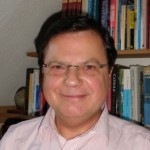 George D. Chryssides is Honorary Research Fellow in Contemporary Religion at the University of Birmingham. He studied philosophy and theology at the universities of Glasgow and Oxford, and has taught in several British universities, becoming Head of Religious Studies at the University of Wolverhampton in 2001. He has a particular interest in new religious movements, on which he has published extensively. Recent publications include Christians in the Twenty-First Century (with Margaret Z Wilkins), published by Equinox (2010). His second edition of Historical Dictionary of New Religious Movements is also out, dated 2012. His website, www.religion21.com, includes several resources which may be useful, including “From Jesus Christ to Father Christmas — an attempt to define the scope and subject-matter of Christianity”. You may also wish to see Russell T. McCutcheon’s edited volume The Insider/Outsider Problem in the Study of Religion.
George D. Chryssides is Honorary Research Fellow in Contemporary Religion at the University of Birmingham. He studied philosophy and theology at the universities of Glasgow and Oxford, and has taught in several British universities, becoming Head of Religious Studies at the University of Wolverhampton in 2001. He has a particular interest in new religious movements, on which he has published extensively. Recent publications include Christians in the Twenty-First Century (with Margaret Z Wilkins), published by Equinox (2010). His second edition of Historical Dictionary of New Religious Movements is also out, dated 2012. His website, www.religion21.com, includes several resources which may be useful, including “From Jesus Christ to Father Christmas — an attempt to define the scope and subject-matter of Christianity”. You may also wish to see Russell T. McCutcheon’s edited volume The Insider/Outsider Problem in the Study of Religion.
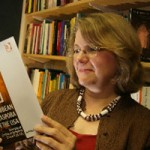 Dr Bettina Schmidt is Senior lecturer in the study of religions in the School of Theology, Religious Studies and Islamic Studies at the University of Wales, Trinity St. David. Her PhD concerned ethnicity and religion, focusing on Santeria and Spiritism in Puerto Rico (University of Marburg, 1996), and she went on to post-doctoral work in cultural theories and Caribbean religions (University of Marburg, 2001). Dr Schmidt has worked as a lecturer in anthropology for various German universities, as well as Visiting Professor at the City University of New York and of the Universidad Nacional de San Antonio Abad in Cusco, Peru. At the moment she is member of the board of editors of the journal Indiana, an annual journal of the Ibero American Institute in Berlin, and of the journalCurare, a journal of medical anthropology and transcultural psychiatry, published by the AG Ethnomedicine, and Secretary of the BASR.
Dr Bettina Schmidt is Senior lecturer in the study of religions in the School of Theology, Religious Studies and Islamic Studies at the University of Wales, Trinity St. David. Her PhD concerned ethnicity and religion, focusing on Santeria and Spiritism in Puerto Rico (University of Marburg, 1996), and she went on to post-doctoral work in cultural theories and Caribbean religions (University of Marburg, 2001). Dr Schmidt has worked as a lecturer in anthropology for various German universities, as well as Visiting Professor at the City University of New York and of the Universidad Nacional de San Antonio Abad in Cusco, Peru. At the moment she is member of the board of editors of the journal Indiana, an annual journal of the Ibero American Institute in Berlin, and of the journalCurare, a journal of medical anthropology and transcultural psychiatry, published by the AG Ethnomedicine, and Secretary of the BASR.
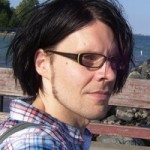 Dr. Teemu Taira holds a research fellowship at the Academy of Finland at the department of Comparative Religion, University of Turku, Finland. He received his PhD in 2006 from the University of Turku and his recent research has focused on three areas: (1) religion and the secular in the British and Finnish media, (2) the new visibility of atheism, and (3) discursive study on ‘religion’. Taira’s current project examines discourse on religion and the secular in the Finnish media. For a full list of Taira’s publications in English and Finnish languages, see www.teemutaira.wordpress.com.
Dr. Teemu Taira holds a research fellowship at the Academy of Finland at the department of Comparative Religion, University of Turku, Finland. He received his PhD in 2006 from the University of Turku and his recent research has focused on three areas: (1) religion and the secular in the British and Finnish media, (2) the new visibility of atheism, and (3) discursive study on ‘religion’. Taira’s current project examines discourse on religion and the secular in the Finnish media. For a full list of Taira’s publications in English and Finnish languages, see www.teemutaira.wordpress.com.
 Beth Singler is a PhD candidate at Cambridge University, UK. Her research focuses on New Religious Movements of the 20th and 21st Centuries, particularly those with an online community or an experimental relationship with popular culture. Beth’s MPhil research on the development online of a religion of Anorexia has been presented in papers at Interface 2011 (“Theology in the 3rd Millennium: Studying New Religious Movements on the Internet, the Case of the Pro-Ana Movement and Anamadim”) and at BASR 2011 (“When Ritual Cannot End – The Pro-Ana Movement and Anamadic Asceticism”). Jediism was the focus of a paper for BASR 2012, (“Jedi Ltd. or Limited Jedi? Jediism and the Changing Domains of Religious Conflict in New Religious Movements”) and she is currently working on a chapter examining how online New Religious Movements such as Jediism and Freezone Scientology deal with disputes and legal issues for a forthcoming book on religion and legal pluralism. Her PhD thesis examines the evolution of a New Age category of Self, Indigo Children, and has the provisional title: “The Indigo Children: New Age Experiments with Self and Science”. See her Academia.edu page for more details, or follow her @bvlsingler on Twitter.
Beth Singler is a PhD candidate at Cambridge University, UK. Her research focuses on New Religious Movements of the 20th and 21st Centuries, particularly those with an online community or an experimental relationship with popular culture. Beth’s MPhil research on the development online of a religion of Anorexia has been presented in papers at Interface 2011 (“Theology in the 3rd Millennium: Studying New Religious Movements on the Internet, the Case of the Pro-Ana Movement and Anamadim”) and at BASR 2011 (“When Ritual Cannot End – The Pro-Ana Movement and Anamadic Asceticism”). Jediism was the focus of a paper for BASR 2012, (“Jedi Ltd. or Limited Jedi? Jediism and the Changing Domains of Religious Conflict in New Religious Movements”) and she is currently working on a chapter examining how online New Religious Movements such as Jediism and Freezone Scientology deal with disputes and legal issues for a forthcoming book on religion and legal pluralism. Her PhD thesis examines the evolution of a New Age category of Self, Indigo Children, and has the provisional title: “The Indigo Children: New Age Experiments with Self and Science”. See her Academia.edu page for more details, or follow her @bvlsingler on Twitter.
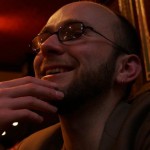 Christopher R. Cotter is a PhD Candidate at Lancaster University, UK. His thesis, under the supervision of Professor Kim Knott, focuses upon the lived relationships between the concepts of ‘religion’, ‘nonreligion’, and the ‘secular’, and their theoretical implications for Religious Studies. In 2011, he completed his MSc by Research in Religious Studies at the University of Edinburgh, on the topic ‘Toward a Typology of Nonreligion: A Qualitative Analysis of Everyday Narratives of Scottish University Students’. Chris has published on contemporary atheism in the International Journal for the Study of New Religions, is Editor and Bibliography Manager at the Nonreligion and Secularity Research Network, and co-editor (with Abby Day and Giselle Vincett) of the volume Social Identities between the Sacred and the Secular (Ashgate, 2013). See his personal blog, or academia.edu page for a full CV.
Christopher R. Cotter is a PhD Candidate at Lancaster University, UK. His thesis, under the supervision of Professor Kim Knott, focuses upon the lived relationships between the concepts of ‘religion’, ‘nonreligion’, and the ‘secular’, and their theoretical implications for Religious Studies. In 2011, he completed his MSc by Research in Religious Studies at the University of Edinburgh, on the topic ‘Toward a Typology of Nonreligion: A Qualitative Analysis of Everyday Narratives of Scottish University Students’. Chris has published on contemporary atheism in the International Journal for the Study of New Religions, is Editor and Bibliography Manager at the Nonreligion and Secularity Research Network, and co-editor (with Abby Day and Giselle Vincett) of the volume Social Identities between the Sacred and the Secular (Ashgate, 2013). See his personal blog, or academia.edu page for a full CV.
David G. Robertson is a Ph.D. candidate in the Religious Studies department of the University of Edinburgh. His research examines how UFO narratives became the bridge by which ideas crossed between the conspiracist and New Age milieus in the post-Cold War period. More broadly, his work concerns contemporary alternative spiritualities, and their relationship with popular culture. Recent publications: “Making the Donkey Visible: Discordianism in the Works of Robert Anton Wilson” in C. Cusack & A. Norman (Eds.), Brill Handbook of New Religions and Cultural Production. Leiden: Brill (2012) “(Always) Living in the End Times: The “rolling prophecy” of the conspracist milieu” in When Prophecy Persists. London: INFORM/Ashgate (2013). For a full CV and my MSc thesis on contemporary gnosticism, see my Academia page or my personal blog.
Studying Nonreligion within Religious Studies
How we can position the study of non-religion within the discipline of Religious Studies? Sounds like a bit of an oxymoron, doesn't it? Those of you who have been listening to the Religious Studies Project for some time will be somewhat familiar with the emerging sub-field of ‘non-religion’ studies. Perhaps you have listened to our podcast with Lois Lee, the founder of the Non-religion and Secularity Research Network, and wanted to know more? Or maybe you have heard Chris’s incessant "yes, but what about the ‘non-religious'"? question in interviews and roundtables and wondered what this all has to do with Religious Studies? Whether or not either of these happened, we hope that you will enjoy this roundtable discussion with Dr. Louise Connelly, Christopher Cotter, Dr. Frans Jespers, Ethan Quillen, Dr. Steven Sutcliffe, and Dr. Teemu Taira.
At the suggestion of Dr. Steven Sutcliffe, Chris convened a group of scholars to discuss the study of non-religion within a Religious Studies framework. How do we define non-religion? What does such a demarcation have to offer our discipline? What is the scholar’s role in assigning labels such as ‘religious’ or ‘non-religious to individuals or groups who may eschew such labels? Are the ‘spiritual but not religious’ to be considered ‘non-religious’? And why would we even want to use the term ‘non-religion’ anyway? These questions and more form the basis of what became quite a lively discussion.
Five Lectures on Atheism, Nonreligion, and Secularity, from the NSRN
 In partnership with the NSRN (Nonreligion and Secularity Research Network), it is our pleasure to bring you the audio recordings of five very important lectures.
In partnership with the NSRN (Nonreligion and Secularity Research Network), it is our pleasure to bring you the audio recordings of five very important lectures.
The first is the NSRN Annual Lecture from April 2011, recorded at St Mary's University College in Twickenham:
- Atheism Explained: The Evolutionary Origins of Atheistic ThoughtJonathan Lanman (Queen's University, Belfast)
The other four are the keynote lectures from the NSRN's Biennial Conference, recorded at Goldsmiths University, London, in July 2012:
- The People of No ReligionCallum Brown (University of Dundee)
- Secularization and Non-religion in Non-Western Contexts
Humeira Iqtidar (King's College, London) - Multiple Secularities: Toward a Cultural Sociology of Secular-Religious DistinctionsMonika Wohlrab-Sahr (University of Leipzig)
- Belief and Unbelief: Two Sides of a CoinGrace Davie (University of Exeter)
Chris, one of the Religious Studies Project's (RSP) 'editors-in-chief', is also Managing Editor of the NSRN's website and therefore, when the NSRN wanted to make available some podcasts from recent events, it seemed like a win-win situation for both organizations for the RSP to host and disseminate these podcasts on behalf of the NSRN. These lectures come as part of an extensive series of podcasts from the RSP which touch on the study of non-religion - from our recent roundtable discussion on Studying Nonreligion within Religious Studies, to our interviews with Linda Woodhead, Callum Brown, and Lois Lee. We appreciate that not all of our visitors will be particularly interested in this area of research, and for that reason we have released all of these lectures at the same time,and avoided placing them on iTunes. However, we are sure that every listener will find something of interest in these recordings, and wish you happy listening over the 'Christmas' period.
For those of you who don't know the NSRN, the Nonreligion and Secularity Research Network is an international and interdisciplinary network of researchers founded in 2008 which aims to centralise existing research on the topic of non-religion and secularity and to facilitate discussion in this area. The NSRN run a series of events including their biennial conference and annual lecture series, in addition to maintaining a vibrant website with extensive collection of resources, publications, and listings for teachers and students working in the area of non-religion and secularity.
Due to the lecture style of these recordings, it is somewhat inevitable that the audio quality will be lower than we would like, and that there might be references to PowerPoint presentations or other events happening in the room. However, we know that these will be minor irritations when compared with the stimulating scholarship that you are about to hear, and we are very grateful to the NSRN for working with us to bring you these lectures.
Only 60 Seconds! | Mid-Year Special 2012
Welcome to the Religious Studies Project Christmas (and 1st Anniversary) Special - Only 60 Seconds!
Can Steve Sutcliffe talk about "habitus" for a full 60 seconds without deviation, hesitation or repetition? How much does David Wilson know about "Postmodernism"? Mr David Robertson is your host (ably assisted by the lovely Samantha Mr Chris Cotter) for this special festive episode of the Religious Studies Pro Recorded live in Edinburgh on December 20th, 2012. Be forewarned of some bad language. All resemblance to BBC panel games, living or dead, is entirely coincidental.
Non-denominational seasonal greetings to all our listeners, and best wishes for 2013. This has been an incredible first year for the RSP, and Chris, Louise and I extend sincere thanks to everyone who has contributed in any capacity. We have big plans for year 2, and if you have any ideas, we want to hear them! We'll be back on January 21st, bigger and better than ever. Thanks for listening.
(Thanks to Andrea Quillen for taking photos, and to David Jack for audio assistance.)
Jonathan Tuckett is currently a PhD student at the University of Stirling. He has an MA in Philosophy and Religious Studies and an MSc in Religious Studies from the University of Edinburgh. His research is on the phenomenological method in the study of religion. Areas of interest include the phenomenology of religion, theory and method in the study of religion, and philosophy of religion. Jonathan is also an Assistant Editor for the Religious Studies Project.
Christopher R. Cotter is a PhD Candidate at Lancaster University, UK. His thesis, under the supervision of Professor Kim Knott, focuses upon the lived relationships between the concepts of ‘religion’, ‘nonreligion’, and the ‘secular’, and their theoretical implications for Religious Studies. In 2011, he completed his MSc by Research in Religious Studies at the University of Edinburgh, on the topic ‘Toward a Typology of Nonreligion: A Qualitative Analysis of Everyday Narratives of Scottish University Students’. Chris has published on contemporary atheism in the International Journal for the Study of New Religions, is Editor and Bibliography Manager at the Nonreligion and Secularity Research Network, and co-editor (with Abby Day and Giselle Vincett) of the volume Social Identities between the Sacred and the Secular (Ashgate, 2013). See his personal blog, or academia.edu page for a full CV.
Steven Sutcliffe is Senior Lecturer in the Study of Religion at the University of Edinburgh where he teaches and researches in the areas of 'new age religion' and 'holistic spirituality', in the effects of the discourse and practice of 'religion' in contemporary culture and society, and on theory and method in the study of religion, including the history of its modern academic study. He is the author of Children of the New Age, editor of Religion: Empirical Studies, and co-editor (with Marion Bowman) of Beyond the New Age.
Ethan Gjerset Quillen wrote Circular Academia: Navigating the Dangerous Waters of Term Re-Assignment for the Religious Studies Project.
David G. Robertson is a Ph.D. candidate in the Religious Studies department of the University of Edinburgh. His research examines how UFO narratives became the bridge by which ideas crossed between the conspiracist and New Age milieus in the post-Cold War period. More broadly, his work concerns contemporary alternative spiritualities, and their relationship with popular culture. Recent publications: “Making the Donkey Visible: Discordianism in the Works of Robert Anton Wilson” in C. Cusack & A. Norman (Eds.), Brill Handbook of New Religions and Cultural Production. Leiden: Brill (2012) “(Always) Living in the End Times: The “rolling prophecy” of the conspracist milieu” in When Prophecy Persists. London: INFORM/Ashgate (2013). For a full CV and my MSc thesis on contemporary gnosticism, see my Academia page or my personal blog.
David Wilson is a former partner in a City of London law firm, which involved spending ten years living and working in the Middle East. Getting bored with that, David returned to the University of Edinburgh to embark upon a PhD in religious studies, entitled ‘Spiritualist Mediums and other Traditional Shamans: towards an apprenticeship model of shamanic practice’. He is the author of ‘Waking the Entranced: Reassessing Spiritualist Mediumship Through a Comparison of Spiritualist and Shamanic Spirit Possession Practices’ in Schmidt, B. A. and Huskinson, L. (eds.) (2010), and ‘Spirit Possession and Trance: New Interdisciplinary Perspectives’ (2010). His first book, ‘Redefining Shamanism: Spiritualist Mediums and other Traditional Shamans as Apprenticeship Outcomes’, will be published in January 2013.
Biblical Studies and Religious Studies
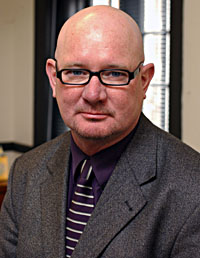 What is the relationship between Religious Studies and the study of the Christian New Testament? Although RS is often considered to be "studies of thee other religions", Biblical Studies also offers a way into the broader theoretical and definitional issues in the study of religions. As Dale B. Martin explains to Jack Tsonis, Biblical Studies is non-confessional and provides a useful toolbox for historical and textual analysis. They go on to discuss the possibility or otherwise of RS as politically neutral, and the state of the discipline within the modern academy in the US.
What is the relationship between Religious Studies and the study of the Christian New Testament? Although RS is often considered to be "studies of thee other religions", Biblical Studies also offers a way into the broader theoretical and definitional issues in the study of religions. As Dale B. Martin explains to Jack Tsonis, Biblical Studies is non-confessional and provides a useful toolbox for historical and textual analysis. They go on to discuss the possibility or otherwise of RS as politically neutral, and the state of the discipline within the modern academy in the US.
You can also download this interview, and subscribe to receive our weekly podcast, on Is there a Christian Agenda behind Religious Studies departments?
 Dale Martin is Woolsey Professor of Religious Studies, Director of Graduate Studies at Yale University, specialising in New Testament and Christian Origins, including attention to social and cultural history of the Greco-Roman world. His books include Sex and the Single Savior: Gender and Sexuality in Biblical Interpretation, Pedagogy of the Bible: an Analysis and Proposal, and New Testament History and Literature, and was an associate editor for the revision and expansion of the Encyclopedia of Religion, published in 2005. He has published several articles on topics related to the ancient family, gender and sexuality in the ancient world, and ideology of modern biblical scholarship, including titles such as: "Contradictions of Masculinity: Ascetic Inseminators and Menstruating Men in Greco-Roman Culture."
Dale Martin is Woolsey Professor of Religious Studies, Director of Graduate Studies at Yale University, specialising in New Testament and Christian Origins, including attention to social and cultural history of the Greco-Roman world. His books include Sex and the Single Savior: Gender and Sexuality in Biblical Interpretation, Pedagogy of the Bible: an Analysis and Proposal, and New Testament History and Literature, and was an associate editor for the revision and expansion of the Encyclopedia of Religion, published in 2005. He has published several articles on topics related to the ancient family, gender and sexuality in the ancient world, and ideology of modern biblical scholarship, including titles such as: "Contradictions of Masculinity: Ascetic Inseminators and Menstruating Men in Greco-Roman Culture."
Mormonism, Growth and Decline
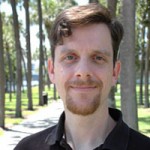 Mormonism - or the Church of Jesus Christ of the Latter Day Saints (LDS) - exploded onto the scene at the beginning of the nineteenth century in the United States of America, and has courted controversy ever since. From the recent upsurge in worldwide visibility of Mormonism due to the widespread attention given to the religious identity of Mitt Romney (the Republican Candidate in the 2012 US Presidential elections), to the huge success of the Southpark creators' hit musical The Book of Mormon, there is no shortage of ill-informed opinion surrounding this group. Unsurprisingly, the academic study of religion has its own questions about Mormonism: can it be described as a New Religious Movement? Is there a unified phenomenon which can be classified as Mormonism? Is Mormonism to be considered as a form of Christianity? This week, Chris is joined by Ryan Cragun - Associate Professor of Sociology at the University of Tampa, Florida - to discuss not only these conceptual issues, but issues relating specifically to quantitative research, Mormon demographics, and the worldwide growth and decline of the LDS Church.
Mormonism - or the Church of Jesus Christ of the Latter Day Saints (LDS) - exploded onto the scene at the beginning of the nineteenth century in the United States of America, and has courted controversy ever since. From the recent upsurge in worldwide visibility of Mormonism due to the widespread attention given to the religious identity of Mitt Romney (the Republican Candidate in the 2012 US Presidential elections), to the huge success of the Southpark creators' hit musical The Book of Mormon, there is no shortage of ill-informed opinion surrounding this group. Unsurprisingly, the academic study of religion has its own questions about Mormonism: can it be described as a New Religious Movement? Is there a unified phenomenon which can be classified as Mormonism? Is Mormonism to be considered as a form of Christianity? This week, Chris is joined by Ryan Cragun - Associate Professor of Sociology at the University of Tampa, Florida - to discuss not only these conceptual issues, but issues relating specifically to quantitative research, Mormon demographics, and the worldwide growth and decline of the LDS Church.
You can also download this interview, and subscribe to receive our weekly podcast, on iTunes. And if you enjoyed it, please take a moment to rate us, 'Like' us on Facebook, and/or follow us on Twitter.
What numbers should a quantitative scholar use when 'counting' Mormonism? Who does the categorization? Is Mormonism outside of the US different? In what ways? And what about Mormonism in the 'heartland' of Utah? These are just some of the questions which come up in the interview, and Professor Cragun provides a great introduction not only to Mormonism and quantitative research, but also to Mormon growth and decline in the context of the secularization thesis, and to the intricate relationships and correlations which can be observed between LDS membership and factors such as gender, employment, education, and ethnicity.
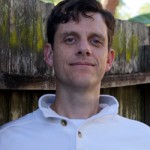 A number of papers are referred to in this interview, including Comparing the Geographic Distributions and Growth of Mormons, Adventists, and Witnesses, The Secular Transition: The Worldwide Growth of Mormons, Jehovah’s Witnesses, and Seventh-day Adventists, and The Price of Free Inquiry in Mormonism, all of which can be accessed on Ryan's personal website. Ryan Cragun is Associate Professor of Sociology at the University of Tampa, Florida. He is author and co-author of many peer-reviewed articles in the Journal of Contemporary Relgiion, Sociology of Religion, the Journal for the Scientific Study of Religion, and more, and is the co-author (with Rick Phillips) of Could I Vote for a Mormon for President? An Election Year Guide to Mitt Romney’s Religion (2012), and author of the forthcoming What You Don’t Know About Religion (but Should).
A number of papers are referred to in this interview, including Comparing the Geographic Distributions and Growth of Mormons, Adventists, and Witnesses, The Secular Transition: The Worldwide Growth of Mormons, Jehovah’s Witnesses, and Seventh-day Adventists, and The Price of Free Inquiry in Mormonism, all of which can be accessed on Ryan's personal website. Ryan Cragun is Associate Professor of Sociology at the University of Tampa, Florida. He is author and co-author of many peer-reviewed articles in the Journal of Contemporary Relgiion, Sociology of Religion, the Journal for the Scientific Study of Religion, and more, and is the co-author (with Rick Phillips) of Could I Vote for a Mormon for President? An Election Year Guide to Mitt Romney’s Religion (2012), and author of the forthcoming What You Don’t Know About Religion (but Should).
This interview was recorded in the business centre at the Lord Elgin Hotel, Ottawa during the Atheist Identities: Spaces and Social Contexts Conference. We are grateful to everyone who facilitated the recording in any way.
The ‘Persistence’ and ‘Problem’ of Religion
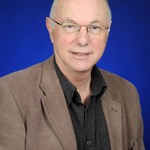 Some fifty years ago scholars claimed the end of religion was nigh. More recently some at the fringe of the Christian religion have touted the imminent end of the world. But the world is still here; and so is religion, although religion could rarely be described as unproblematic. In this interview with Chris, Douglas Pratt - Professor of Religious Studies at the University of Waikato, New Zealand - asks: 'Why is religion so persistent?' What are we to make of contemporary problematic issues, such as extremism and terrorism, often associated with religion? What might the Taliban in Afghanistan, Anders Breivik in Norway, and the Christchurch Cathedral in New Zealand, have in common, for instance? And why should scholars care?
Some fifty years ago scholars claimed the end of religion was nigh. More recently some at the fringe of the Christian religion have touted the imminent end of the world. But the world is still here; and so is religion, although religion could rarely be described as unproblematic. In this interview with Chris, Douglas Pratt - Professor of Religious Studies at the University of Waikato, New Zealand - asks: 'Why is religion so persistent?' What are we to make of contemporary problematic issues, such as extremism and terrorism, often associated with religion? What might the Taliban in Afghanistan, Anders Breivik in Norway, and the Christchurch Cathedral in New Zealand, have in common, for instance? And why should scholars care?
You can also download this interview, and subscribe to receive our weekly podcast, on iTunes. If you enjoyed it, please take a moment to rate us, ‘Like’ us on Facebook, and/or follow us on Twitter. And if you want to support the RSP, you can click through to Amazon.co.uk through our affiliates link, and we will earn referral fees from any transactions during your visit.
In this interview, Professor Pratt outlines a model for understanding the nature of the 'persistence' of religion, paying particular attention to three interwoven dimensions: narrative, ethical, and metaphysical. He also discusses, in the light of this model, the contemporary 'problem' of exclusivism and extremism which arguably arise from the lack of an adequate conceptual mechanism for coping with religious diversity. This interview was based on Professor Pratt's keynote lecture, of the same title, at the 2012 BASR Annual Conference in Winchester, UK.
 Douglas Pratt is Professor of Religious Studies at the University of Waikato, New Zealand. His research interests focus on aspects of Christianity, Islam, Christian-Muslim relations, interreligious dialogue, and contemporary religious issues such as pluralism, fundamentalism and extremism. He is currently the President of the Australian Association for the Study of Religion (AASR). He has previously studied and taught at the Universities of Oxford and Birmingham, UK, University of Heidelberg, Germany, and has been a visiting scholar at the International Islamic University, Malaysia, and the Pontifical Institute for the Study of Arabic and Islam, Rome. Professor Pratt is a co-editor of a major re-publication series of classic texts in the field of Islamic Studies – Exploring the House of Islam: Perceptions of Islam in the Period of Western Ascendancy 1800-1945 – published by Gorgias Press, New Jersey, USA, and a co-editor and contributor to a major book, Understanding Interreligious Relations, to be published by OUP in 2013. He is a member of the international research leadership team on a major 4-year UK AHRC funded project Christian-Muslim Relations 1500-1900 commencing late 2012.
Douglas Pratt is Professor of Religious Studies at the University of Waikato, New Zealand. His research interests focus on aspects of Christianity, Islam, Christian-Muslim relations, interreligious dialogue, and contemporary religious issues such as pluralism, fundamentalism and extremism. He is currently the President of the Australian Association for the Study of Religion (AASR). He has previously studied and taught at the Universities of Oxford and Birmingham, UK, University of Heidelberg, Germany, and has been a visiting scholar at the International Islamic University, Malaysia, and the Pontifical Institute for the Study of Arabic and Islam, Rome. Professor Pratt is a co-editor of a major re-publication series of classic texts in the field of Islamic Studies – Exploring the House of Islam: Perceptions of Islam in the Period of Western Ascendancy 1800-1945 – published by Gorgias Press, New Jersey, USA, and a co-editor and contributor to a major book, Understanding Interreligious Relations, to be published by OUP in 2013. He is a member of the international research leadership team on a major 4-year UK AHRC funded project Christian-Muslim Relations 1500-1900 commencing late 2012.
Sociotheology and Cosmic War
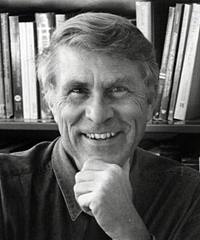 Over the course of the last few decades religious violence has become an increasingly salient topic of public discourse and particularly in its global manifestations. In the social sciences these discourses focus primarily on explanations of violent acts that are driven by the socio-political contexts enveloping them. Mark Juergensmeyer argues that such explanations only tell part of the story, however, since some actions are motivated by a religious vision, like the vision of “cosmic war.” Talking to Per in this podcast Juergensmeyer explains how a “sociotheological approach” is particularly well suited to the task of understanding religious violence by engaging the worldviews of violent actors directly and taking their theological concerns as seriously as their political ideologies.
Over the course of the last few decades religious violence has become an increasingly salient topic of public discourse and particularly in its global manifestations. In the social sciences these discourses focus primarily on explanations of violent acts that are driven by the socio-political contexts enveloping them. Mark Juergensmeyer argues that such explanations only tell part of the story, however, since some actions are motivated by a religious vision, like the vision of “cosmic war.” Talking to Per in this podcast Juergensmeyer explains how a “sociotheological approach” is particularly well suited to the task of understanding religious violence by engaging the worldviews of violent actors directly and taking their theological concerns as seriously as their political ideologies.
You can also download this interview, and subscribe to receive our weekly podcast, on iTunes. If you enjoyed it, please take a moment to rate us, ‘Like’ us on Facebook, and/or follow us on Twitter. And if you want to support the RSP, you can click through to Amazon.co.uk through our affiliates link, and we will earn referral fees from any transactions during your visit.
Mark Juergensmeyer is a former president of the American Academy of Religion and the current director of the Orfalea Center for Global and International Studies at the University of California, Santa Barbera where he also teaches sociology and religious studies. He is a prolific writer and speaker whose work deals with South Asian religion and politics, religious violence and global religion among other topics. Recent books include Terror in the Mind of God: The Global Rise of Religious Violence, Global Rebellion: Religious Challenges to the Secular State, and the just released The Oxford Handbook of Religion and Violence, which contains a chapter outlining, “A Sociotheological Approach to the Study of Religious Violence.”
Religion and Globalization
Over the past few weeks we have been looking at 'religion' in a 'global context' - from Mark Juergensmeyer's sociotheological approach to 'cosmic war', to Douglas Pratt's discussion of the 'persistence and problem' of 'religion', and Ryan Cragun's introduction and overview to Mormon demographics across the globe. The final interview in this series was recorded in Ottawa in November 2012, and features Chris speaking with Peter Beyer, Professor in the Department of Classics and Religious Studies at the University of Ottawa, who - as Chris has proudly stated ad nauseum - literally wrote the book on Religions in Global Society.
What do we mean by globalization? What does this concept have to say to the study of religion? How have religions been agents in the globalization process? What theoretical and methodological issues arise when trying to answer such questions? All of these questions and more are tackled in an interview which touches on post-colonialism, secularization theory, theodicy, Rational Choice Theory, and something called Post-Westphalianism. We hope you enjoy it!
You can also download this interview, and subscribe to receive our weekly podcast, on iTunes. If you enjoyed it, please take a moment to rate us, ‘Like’ us on Facebook, and/or follow us on Twitter. And if you want to support the RSP, you can click through to Amazon.co.uk through our affiliates link, and we will earn referral fees from any transactions during your visit.
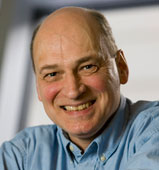 In the earlier parts of his career, Peter Beyer focused his research primarily on sociological theory of religion and on themes in Canadian religious history, doing his doctoral dissertation on the Louis Riel and postdoctoral studies on 19th and 20th century French Canadian Roman Catholicism. Since the mid-1980s, however, his main interests have centred on the sociological understanding of the relations between religion and globalization and on religion in contemporary Canada. His current research focuses on religious diversity and multiculturalism in Canada, especially as concerns recent immigrants and the second generation of these immigrants. He is the author of Religion and Globalization, Religions in Global Society, and co-editor (with Lori Beaman) of Religion, Globalization, and Culture (International Studies in Religion and Society Series)
In the earlier parts of his career, Peter Beyer focused his research primarily on sociological theory of religion and on themes in Canadian religious history, doing his doctoral dissertation on the Louis Riel and postdoctoral studies on 19th and 20th century French Canadian Roman Catholicism. Since the mid-1980s, however, his main interests have centred on the sociological understanding of the relations between religion and globalization and on religion in contemporary Canada. His current research focuses on religious diversity and multiculturalism in Canada, especially as concerns recent immigrants and the second generation of these immigrants. He is the author of Religion and Globalization, Religions in Global Society, and co-editor (with Lori Beaman) of Religion, Globalization, and Culture (International Studies in Religion and Society Series).

